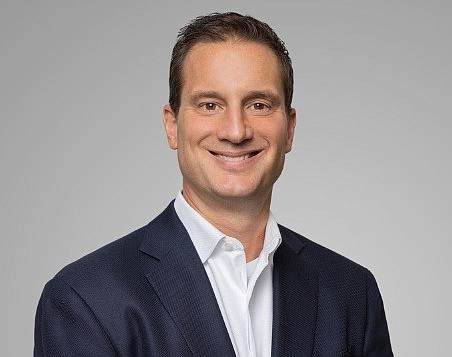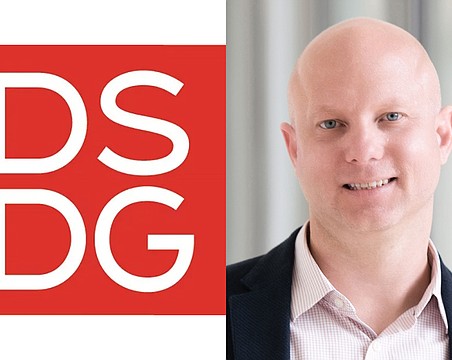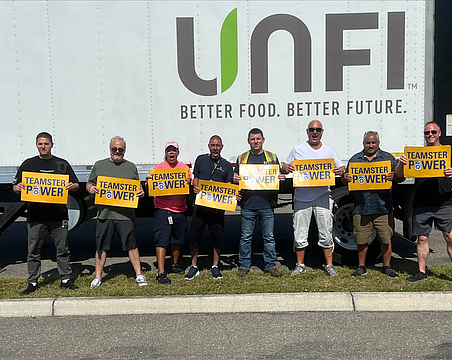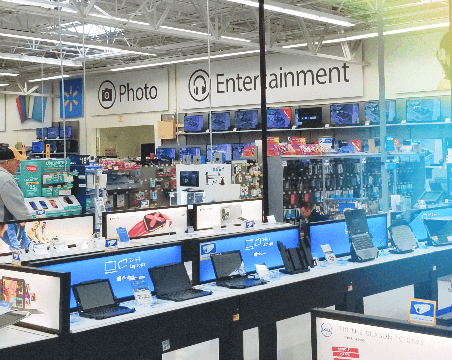King Cash
Stocks are the cheapest they have been since 1995, and now many strong companies' cash exceeds their market value.
investing by Michael Tsang and Alexis Xydias | Bloomberg News
Stocks have fallen so far that 2,267 companies around the globe are offering profits to investors for free. That's eight times as many as at the end of the last bear market, when the shares rose 115% over the next year.
Bank of New York Mellon Corp. in New York, Danieli SpA in Buttrio, Italy and Seoul-based Namyang Dairy Products Co. hold more cash than the value of their stock and debt as the slowing world economy wiped out $32 trillion in capitalization this year.
Companies in the MSCI World Index trade for an average $1.17 per dollar of net assets, the lowest since at least 1995, and 39% sell at a discount to shareholder equity, data compiled by Bloomberg show.
The cash-rich companies allow investors to pay nothing for future earnings streams, providing opportunities to buyers concerned about deflation, according to Jean-Marie Eveillard, whose $16 billion First Eagle Global Fund has beaten 98% of competitors this year. Microsoft Corp. and Novo Nordisk A/S, which generate the most money compared with debt, can expand even if lower consumer demand erodes profits.
"Cash is king, not necessarily for the investor but for corporations," Eveillard said in an interview from New York last week. His fund holds both Microsoft and Namyang Dairy. "It's useful to sit on a ton of cash, No. 1 to survive, as opposed to going bankrupt, and No. 2 to seize opportunities either to make acquisitions cheaply or to squeeze competitors."
BNY Mellon is among 50 companies with a market capitalization greater than $1 billion that hold more cash than the value of their stock and debt, out of 2,267 overall, data compiled by Bloomberg show.
"Everywhere I look, I see cash," says James Paulsen, chief investment strategist at Minneapolis-based Wells Capital Management, which manages $220 billion. "When greed overcomes fear again, value is going to wag the dog."
Stocks plunged this year after almost $1 trillion in bank losses and writedowns froze credit markets and pushed the U.S., Europe and Japan into the first simultaneous recessions since World War II. The 38% drop in the Standard & Poor's 500 Index is the steepest since 1937, while the MSCI World's 44% plummet is the biggest since the gauge started in 1970.
The slump left prices in the global measure at 1.17 times companies' so-called book value, or assets minus liabilities, on Nov. 20, the lowest on record, data compiled by Bloomberg show.
'Good cash flow'
The MSCI World climbed 5.5% at 4:32 p.m. in New York, while the S&P 500 rose 3.8% after U.S. President-elect Barack Obama pledged the biggest investment in the nation's infrastructure since the 1950s to stimulate the economy. Today's rally lifted the S&P 500 to 909.70, 21% above its 11-year low on Nov. 20.
Stagnating growth is heightening the risk of deflation. In the U.S., consumer prices plunged 1% in October, the biggest drop since records began in 1947. They may slow next year by the most since 1983, squeezing earnings, according to the International Monetary Fund in Washington.
Businesses with reserves will be cushioned from insolvency and may even benefit from deflation because buying power and the value of dividends increase as prices retreat, says Arlene Rockefeller, chief investment officer for global equities at State Street Global Advisors, which oversees $1.7 trillion.
"You want stocks with good cash flow and are self- funding," Rockefeller says. "This is an opportunity for companies that are large and that do not have a lot of debt to go out and acquire other companies to gain market share."
The firm's SSgA Disciplined Equity Fund held shares of BNY Mellon, the world's largest custodian of financial assets. The bank had $24 billion in so-called negative enterprise value, or the amount of cash that exceeds the value of its shares and debt. The stock climbed 26% since Nov. 20.
Danieli, Italy's biggest maker of equipment for the steel industry, has $1.49 billion in cash, or almost 40% more than the combined value of its shares and debt after a 71% stock plunge this year, Bloomberg data show.
Just 276 companies had cash that exceeded the value of their stock and debt when the S&P 500 bottomed in 2002. Those shares posted a median total return of 115% over the next 12 months, according to data compiled by Bloomberg. That's more than triple the return for the S&P 500 during the same span.
Of the 50 largest companies in the Dow Jones Stoxx 600 Index of European companies, Novo Nordisk, the world's biggest insulin maker, is one of two whose cash exceeds debt by four times.
'Going to win'
Novo Nordisk Chief Financial Officer Jesper Brandgaard said on Oct. 30 that the Bagsvaerd, Denmark-based company is earmarking as much as $2 billion for takeovers in the next 12 months as the financial crisis forces biotechnology companies to seek buyers. The company has $1.35 billion and generated $1.83 billion in free cash flow in the first three quarters of 2008.
"The ones that are going to win are those that can generate cash," Horacio Valeiras, who oversees $11.2 billion as chief investment officer at Nicholas Applegate Capital Management in San Diego, said in a telephone interview last week. His Nicholas Applegate International Growth Fund bought shares of Novo in the third quarter, data compiled by Bloomberg show. The stock has since gained 11%, while the Stoxx 600 slumped 21%.
Eveillard at First Eagle increased his fund's position in Microsoft, the world's biggest software maker, by 83% to 8.16 million shares last quarter.
The Redmond, Wash.-based company is one of only two in the S&P 500 with cash and marketable securities worth more than $20 billion and less than $2 billion in debt, according to data excluding financial firms compiled by Bloomberg. Apple Inc., the Cupertino, Calif.-based maker of iPhones and Macintosh computers, is the other.
Microsoft and Apple outperformed the MSCI World since its low on Nov. 20, posting advances of 20% and 24%, respectively.
Eveillard's fund is also the biggest overseas shareholder of Namyang Dairy, which has no debt and $270 million in cash. The cash pile is 44% higher than the value of its shares. Reserves at the company, one of South Korea's biggest dairies, account for 65% of its $418 million in so-called tangible book value, a measure of shareholder equity that excludes assets that can't be sold in liquidation.
"Cash provides a break against a potential catastrophe," says Eveillard. "At the end of the day, cash is still worth 100 cents on the dollar."
Private equity
That helps explain why investors have rushed to Treasuries this year. Yields on three-month Treasury bills fell to 0.01% last week as investors paid a premium for the safest, most liquid assets. The level was the lowest since 1940, according to monthly figures compiled by the Federal Reserve.
One reason so many cash-rich companies are available now is because leveraged buyout firms such as Henry Kravis's KKR & Co. and Blackstone Group LP have been hamstrung by the credit crunch, according to Tom Rozycki at Principal Global Investors, which held shares of Danieli.
Private-equity deals fell more than 70% from last year's record $727 billion as banks stopped funding takeovers, Bloomberg data show. The $43 billion buyout of energy producer TXU Corp. by KKR and TPG Inc. in 2007 was the biggest ever.
"You don't wish for this kind of environment, but it's nice to have private equity out of the way so we can get some of these bargains too," Rozycki, who helps oversee $2 billion from Des Moines, Iowa, said in an interview from New York last week.
The Principal MidCap Blend Fund, which he helps manage, has beaten 92% of competing funds this year. "For the longest time, a lot of these companies had premiums in them because people were pointing around at who's going to be acquired next."
Many stocks are cheap because investors doubt their reported asset values and ability to generate enough earnings to survive, says Sergi Martin, who oversees $9 billion as chief executive officer at Credit Andorra's Credit Invest asset management unit in Andorra La Vella, Andorra.
"You have to screen very selectively for companies that will survive, and not for future corpses," Martin said in a telephone interview last week. "There will be more bankruptcies, and where valuations are absurd and there is nothing wrong with the company, time will correct that."
Grahame Exton, a money manager at Tilney Private Wealth Management in Liverpool, England, says clients want the margin of safety provided by reserves.
"We have always been paid to look for cash generators," says Exton, whose firm had $9.9 billion under management at the end of September. "I just think that now people will put a greater emphasis on them."
Cash Buys?
Companies with a market capitalization greater than $1 billion that hold more cash than the value of their stock and debt, according to data compiled by Bloomberg:
Banco do Estado do Rio Grande do Sul SA
Banco Popolare SC
Bank of East Asia Ltd.
Bank Leumi Le-Israel Ltd.
Bank of N.T Butterfield & Son Ltd.
Bank of New York Mellon Corp.
Bank of Beijing Co.
Bank of China Ltd.
Bank of Cyprus
Bank Sarasin
Banque Privee Edmond de Rothschild
Banque Centrale Populaire
BOC Hong Kong (Holdings) Ltd.
Canara Bank Ltd.
China Minsheng Banking Corp.
Chiyoda Corp.
Commercial International Bank
Comverse Technology Inc.
Discover Financial Services
Friends Provident Plc
Great Eastern Holdings Ltd.
Hachijuni Bank Ltd.
Health Net Inc.
Higo Bank Ltd.
Hong Leong Bank Bhd.
Hong Leong Financial Group Bhd.
HSBC Bank Malta Plc
Huaxia Bank Co.
Hutchison Telecommunications International Ltd.
Industrial and Commercial Bank of China (Asia) Ltd.
Intercontinental Bank Plc
Komercni Banka AS
Legal & General Group Plc
National Bank of Belgium
Northern Trust Corp.
OAO OGK-4
Oceanic Bank International Plc
Porto Seguro SA
Sapporo Hokuyo Holdings Inc.
Schroders Plc
Shanghai Pudong Development Bank Co.
Shenzhen Development Bank Co.
Swiss Life Holding
Union Bank of Nigeria
United Bank for Africa Plc
Wing Hang Bank Ltd.
Yamagata Bank Ltd.
Yamanashi Chuo Bank Ltd.
Zenith Bank





